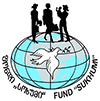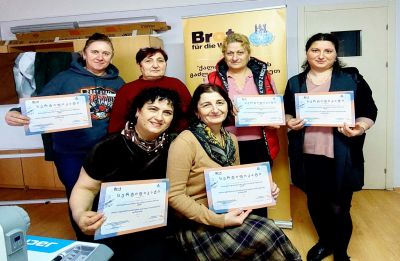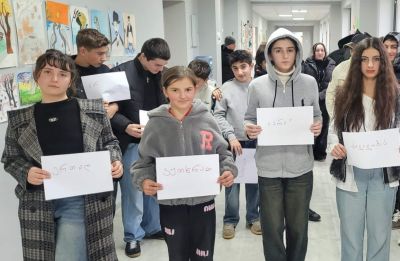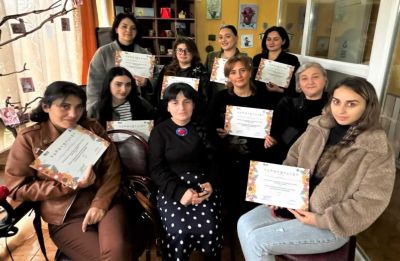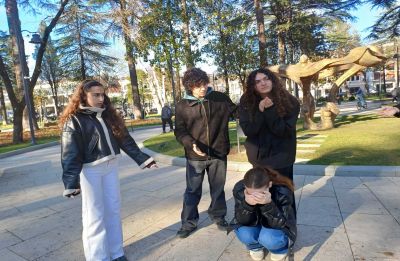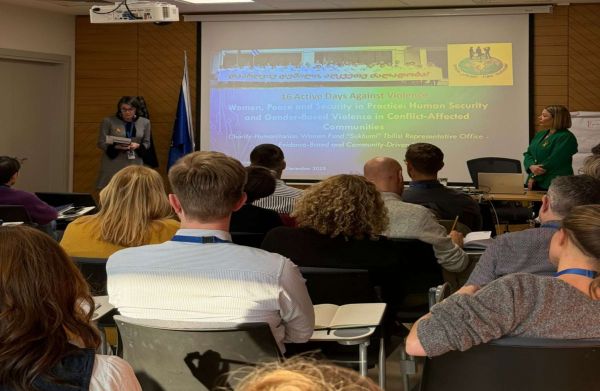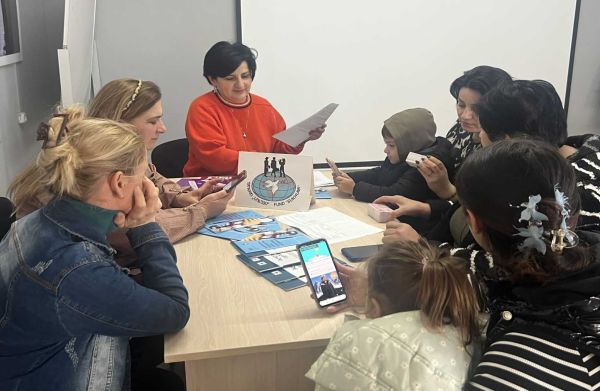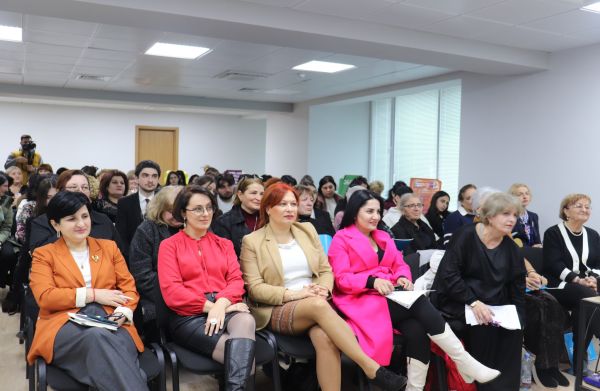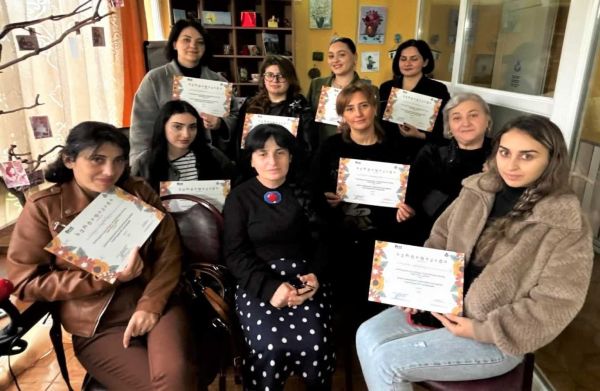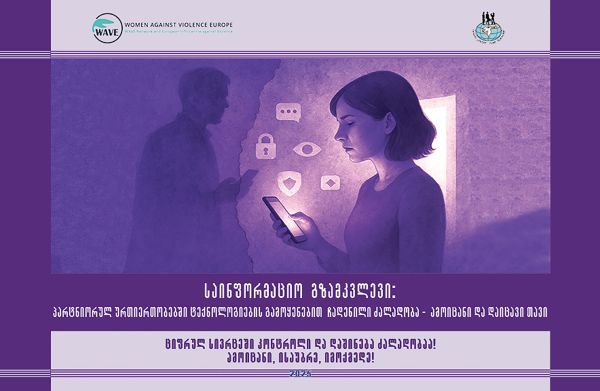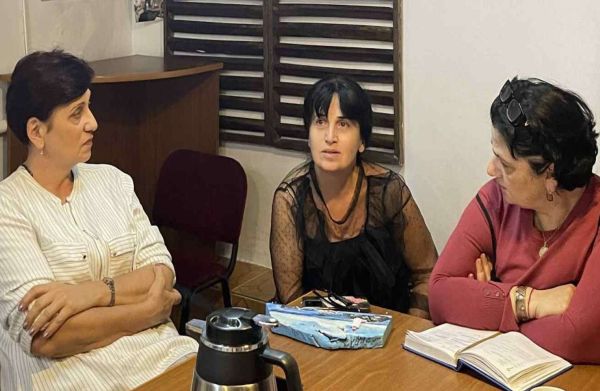At the invitation of EUMM Georgia, Ekaterine Gamakharia, Head of the Tbilisi Office of the Women’s Fund “Sukhumi,” delivered a lecture on: “Women, Peace and Security in Practice; Human Security and Violence Against Women in Conflict-Affected Communities.”
The meeting was held within the framework of the 16 Days of Activism Against Gender-Based Violence campaign. Ekaterine presented the key areas of the organization’s work, recent research findings, and the main security challenges faced by internally displaced and conflict-affected women — including rising social and economic risks, high prevalence of violence, and limited access to support services.
The discussion highlighted the importance of a human-centered approach in designing and implementing security policies, as well as the need to strengthen cooperation between civil society and international security actors.
The project is implemented with the support of Brot für die Welt.
What does the 16-Day Campaign mean, what is its history, and what is its goal? - These questions were discussed with members of Senaki mutual assistance group, as the meeting was part of the campaign.
Participants emphasized that violence against women is an evil that must be combated by educating women. Group members were given brochures about the topic, which they will distribute in their communities.
Participants were provided with information about the community initiatives presented by the group. The applications were approved, and the initiatives will be implemented by the end of December.
The project is implemented by a coalition of non-governmental organizations: the Association of IDP Women "Consent," the Women's Information Center, and the Women's Charitable Humanitarian Fund “Sukhumi”.
On December 4, at the Kutaisi Chamber of Commerce and Industry, the Women’s Fund “Sukhumi” held a regional conference within the global “16 Days of Activism Against Gender-Based Violence” campaign. The event aimed to summarize long-standing practices in violence prevention and response, as well as the key results from 2025.
Around 70 participants attended from 10 municipalities across Imereti, Guria, Samegrelo, and Adjara, including mobilizers of Women’s Support Centers, para-specialists of social work, youth groups, civil society organizations, and international partners.
Discussions explored violence prevention not only through individual cases but also within broader systemic and structural contexts.
The conference featured three thematic panels:
On-the-ground work with women’s groups
Risk identification, first-line support, trauma response, and strengthening community-based mechanisms.
Youth-led initiatives
Youth representatives presented campaigns and community projects, highlighting the new generation’s motivation and ability to contribute to positive change.
Work with women survivors of violence
Focus areas: psychological support, economic empowerment, rehabilitation services, media literacy, and digital safety.
A key insight from the final discussion was that technology-facilitated abuse is one of the fastest-growing threats in 2025, including online surveillance, cyberbullying, unauthorized account access, and digital manipulation.
The project is implemented with the support of Brot für die Welt.
During the final meeting, the graduates presented their very beautiful works. Two months of training, work, and internship at Kutaisi Day Center completed successfully. Alongside their studies, they periodically attended group and individual therapy sessions with a psychologist. This is precisely why the women achieved such good results: they mastered a new profession, increased their self-esteem, expressed satisfaction and gratitude, received certificates. They hope that they will apply their acquired knowledge in practice.
The project is implemented with the support of the organization Brot
für die Welt - Evangelischer Entwicklungsdienst (Germany)
The brochure “Technology-Facilitated Violence in Intimate Relationships – Recognize and Protect Yourself” is a practical guide designed to help women and girls identify and respond to digital forms of abuse such as surveillance, control, and intimidation. It outlines the main types of technology-facilitated violence, legal protection mechanisms, and prevention tools—raising awareness and encouraging action: recognize, speak up, act!
The publication is prepared by the Charity-Humanitarian Women Fund "Sukhumi" with the support of the WAVE Network.
The project implemented with the support of the WAVE Network
Digital abuse is no longer invisible.
It happens when a partner uses phones, social media, location tracking, or any digital tools to control, monitor, intimidate, or threaten you.
The first signs are often subtle - “Give me your password,” “Show me your messages,” “Why weren’t you online?”
But the outcome is the same: loss of personal boundaries.
Project implemented by the Women’s Fund “Sukhumi” with support from the WAVE Network.
Women's mutual assistance groups help each other, motivate, and strengthen each other. It's especially interesting when those gathered hear stories of successful women, and the psychologist encourages them to improve their self-esteem.
Kutaisi women's mutual assistance group had a successful guest. This happened at meetings in Tskaltubo and Terjola also. This provided great motivation for the group members.
Productive meetings were held in Khurcha and Kobuleti. Women discussed a variety of issues, including support for the Fund “Sukhumi”. In Terjola, our forum theater held performance for the group participants, and after the performances, a frank and emotional discussion was held.
Meetings were held in all groups in November. Each new meeting is proof that our organization is committed to empowering women living in the regions.
The project is implemented with the support the Equality Fund (Canada)
At women's mutual assistance group meetings, special attention was paid to our organization's website, "Digital Resource Center for Women Survivors of Violence," https://sosfsokhumi.ge/, which provides women with all the necessary information.
All participants were also provided with information about the "16 Day Campaign Against Gender-based Violence".
Participants asked numerous questions about the campaign, municipal programs, and assistance for socially vulnerable families, all of which received comprehensive answers.
All groups will actively participate in the 16-day campaign, as it is being carried out worldwide to support women like them.
The project is implemented with the support the Equality Fund (Canada)
Based on the findings of our monitoring report, "Why do Women Leave?" (https://fsokhumi.ge/index.php/ka/publikacia/informatia-zaladobis-tsinaagmdeg/item/15769-2025-07-08-16-30-02), the monitoring and advocacy group held a series of discussions and consultative meetings in collaboration with community leaders and youth in ten municipalities and then developed civic initiatives:
Zugdidi (village Khurcha) - "Information Campaign on Migration in Three Villages of Zugdidi Municipality"
Senaki - "Economic Empowerment of Women for Migration Prevention"
Vani - "Information for Women Empowerment"
Chokhatauri - "Together We Will Overcome Everything"
Khoni - "Common Initiatives to Prevent Migration"
Khobi - "Intergenerational Dialogue to Prevent Migration"
The photos clearly demonstrate how impressive is the work done on these initiatives. In Chokhatauri, a space for informal meetings to continue the dialogue was created. A children's corner wasa opened in the Khoni community education center, allowing children to have fun while their parents study. In Khobi, the organization “Toliskuri” purchased books and opened a reading club as part of the initiative. In Khurcha, women already have their own printer, enabling them to print informational and other necessary materials. Manicure classes were opened in Seneki.
The goals of the initiatives are to raise awareness on the social and emotional consequences of migration, reduce the negative impact of migration, promote healthy relationships between adolescents and migrant parents, strengthen the practical skills of IDP women, and expand employment opportunities.
The project is implemented with the support of the organization Brot
für die Welt - Evangelischer Entwicklungsdienst (Germany)
